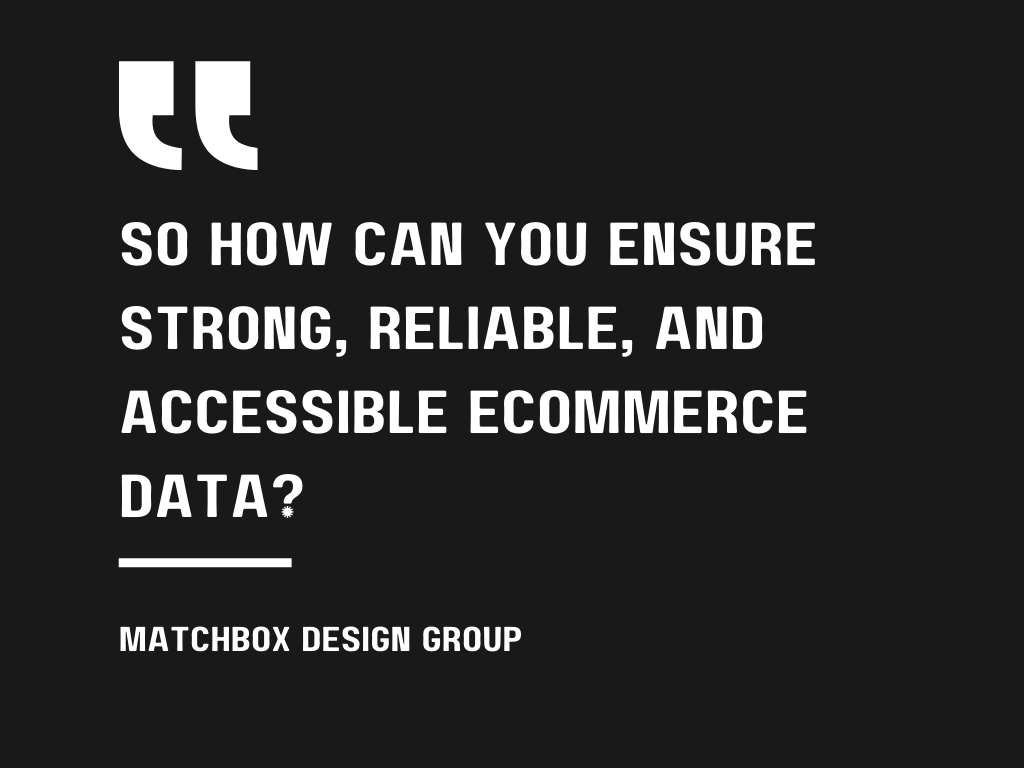Estimated reading time: 8 minutes
By: Maxwell Dallinga
Key Takeaways
- eCommerce Growth: In 2023, eCommerce sales rose by 1.8%, generating nearly $6 trillion.
- Integrated eCommerce Platforms: These platforms connect front-end systems with back-end tools like ERP and CRM, ensuring reliable, consistent data across your business.
- Customer Experience: Integrated platforms enhance user experiences, leading to higher sales and customer satisfaction through features like real-time updates, easy checkout, and package tracking.
- Business Benefits: They reduce manual tasks, improve data visibility and reporting, and automate sales processes.
- Top eCommerce Platforms: Kore Commerce, WooCommerce, and Shopify offer strong integration and customization options for various business needs.
Over the last decade, eCommerce has become a vital aspect of most product-oriented businesses. In 2023, eCommerce saw an estimated 1.8% increase in sales from 2022, equating to nearly 6 trillion dollars in revenue [1].
Related Links
Knowing this, many companies have turned to various eCommerce platforms to maintain and improve their sales channels. Yet adopting the wrong eCommerce platforms has presented many organizations with issues, especially concerning their systems and data connectivity.
One of the biggest hurdles organizations face with eCommerce platforms is how to maintain their business data. For companies looking to scale, having fast, reliable, and accurate access to eCommerce data is imperative. It can help improve customer experience, elevate business decisions, and make profit and growth more achievable.
So how can you ensure strong, reliable, and accessible eCommerce data?
One of the best methods to do so is utilizing integrated eCommerce platforms.
What Are Integrated eCommerce Platforms?
An integrated eCommerce platform is one that connects the front-end of your business to your back-office systems. This means that it can exchange, organize, and utilize data between systems and applications like your ERP, CRM, transportation warehouse managing systems, etc.
By integrating with your back end, you can ensure timely and consistent data across your organization and customer-facing platform. It can help you keep up with inventory, pricing, and sales, providing a clear advantage over non-integrated platforms.
This type of deep integration is often guided by experts, such as Business Central consultants, who ensure ERP systems are seamlessly aligned with your eCommerce workflows.

Why Choose Integrated eCommerce Services?
One of the most important aspects of an integrated eCommerce platform is the improvement of customer experience. According to Digital Commerce 360, surveyed companies found that customer-friendly eCommerce websites saw buyers spend 62% more on their products [2].
Clearly, providing customers with quality shopping experiences is vital toward boosting sales.
Integrated eCommerce platforms can enable these quality experiences by providing optimized, self-service capabilities to customers. These services are designed to enhance the performance and ease-of-use of the website, including features like real-time pricing, package tracking, easy checkout processes, and strong website security. For both B2B and B2C buyers, these aspects of an integrated eCommerce platform can give them a strong sense of control over their shopping process.
As well, integrated eCommerce services provide a major internal advantage to organizations. Some of these benefits can lead to:
- Reduced manual labor
- Increased visibility of customer data
- Improved data reporting
- Automated sales processes
Overall, these platforms are designed to make it easy for your customers to do business with you.
Five Great Benefits Of eCommerce Integration
As we’ve covered some of the advantages of using integrated eCommerce, here are five additional benefits these platforms can provide:
1. No More Manual Order Entry – A major struggle of any business is manually maintaining its order volume. While manual order entry can work, it can also become greatly inefficient and inaccurate. Integrated eCommerce services help reduce this inefficiency by automating the entry process, eliminating errors, and improving dataflow and speed.
2. Consolidated Inventory And Sales Data – A report from IHL estimated 1.77 trillion dollars of lost revenue worldwide caused by inventory distortion in 2023 [3]. However, with an integrated eCommerce platform that connects with your back end, you can ensure that the pricing and inventory data for your organization is accurate. This helps improve customer experience, allowing for real-time updates on pricing and inventory levels as customers shop online.
3. Greater Sales Management – With synchronized data flow and accurate customer data, you can optimize your sales management process. This data can help optimize your sales operations and strategies, while also allowing for superior reporting on sales, customer-behavior, product performance, etc.
4. Sustainable Future – Having stronger customer experience and less manual data entry means that your business can run more smoothly and efficiently. This will allow your company to grow, succeed, and flourish sustainably in the future. With all your data managed and connected, an integrated eCommerce platform could be the perfect choice to scale your company.
5. Enhanced Customer Experience – Gaining and retaining customers relies on a good product or service. Surveyed companies with integrated, customer-friendly eCommerce platforms saw a 70% customer retention rate, as opposed to the 49% who that not.
When Would You Need An Integrated eCommerce Platform?
With so many benefits, why would anyone choose not to have an integrated platform?
For small businesses and businesses without back-office systems, it may not be necessary. It could be out of budget, especially if your inventory is small and your sales are relatively controlled. In cases like these, keeping your platform up-to-date manually isn’t a big issue, and a simple eCommerce platform that can provide a good look to your business will do.
However, the moment your company begins to expand, an integrated eCommerce platform will become crucial toward its growth. Because the organization, inventory, customer-base, and general outreach are much larger, data integration and governance are vital. Thus, for industries like manufacturing, distribution, and large-scale retail, using an integrated eCommerce platform is a key to success and growth.

Top 3 eCommerce Platforms To Consider
So, which eCommerce service is right for you? Below, we’ve gathered three options that could help your eCommerce business:
Kore Commerce
As both a B2B and B2C eCommerce integration platform, Kore Commerce provides a customizable and secure sales enablement platform. Kore Commerce is specifically designed for integration, allowing you to enhance the efficiency and synchronization of your data. Offering a robust storefront, strong online payment and sales-management tools, and even return and repair administration, you can feel confident in your integrated eCommerce storefront.
WooCommerce
Another great eCommerce platform to consider is WooCommerce. As an open-source eCommerce platform for WordPress, WooCommerce is used by over four million online stores. It allows you to sell anything, lets you customize your webstore, gives you ownership over your store’s data, and offers security over you and your customers’ data.
Shopify
Shopify is an eCommerce platform designed to make commerce better for everyone. It can help you customize your online storefront to give you the brand you want, with data that you can build on. Shopify is a solid choice for companies with smaller, less integration focused needs.
Conclusion
Ultimately, for companies looking to save, using integrated eCommerce services is a strong step forward. It can help you manage your data and sales, providing you and your customers with the best possible shopping and selling experience. By providing a strong basis for your organization’s online presence, an integrated eCommerce solution may be the best choice for the future of your business.
How Integrated eCommerce Platforms Can Accelerate Growth FAQS
- What Is An Integrated eCommerce Platform And How Does It Differ From A Standard eCommerce Platform?
- An integrated eCommerce platform connects your front-end (customer-facing) website with your back-office systems, like ERP or CRM, to ensure consistent, real-time data flow. This differs from a standard eCommerce platform, which often requires manual updates and lacks automated data synchronization across different systems.
- Why Is Having Accurate eCommerce Data So Important For Businesses?
- Accurate eCommerce data is crucial for improving customer experience, making informed business decisions, and driving growth. It ensures that pricing, inventory, and sales data are always up to date, reducing errors and inefficiencies that can affect sales and customer satisfaction.
- What Are The Key Benefits Of Using An Integrated ECommerce Platform?
- Key benefits include reduced manual order entry, consolidated inventory and sales data, better sales management, enhanced customer experience, and a more sustainable, scalable business model as your company grows.
- When Should A Business Consider Switching To An Integrated ECommerce Platform?
- A business should consider switching when it begins to scale, especially if managing larger inventories, higher sales volumes, or multiple customer bases. Integrated platforms are essential for industries like manufacturing, distribution, and large-scale retail to ensure seamless data management and customer service.
- Which eCommerce Platforms Are Recommended For Integration-Focused Businesses?
- Kore Commerce, WooCommerce, and Shopify are three highly recommended platforms. Kore Commerce excels in integration for both B2B and B2C. WooCommerce is ideal for WordPress users, and Shopify is a solid choice for businesses with smaller, less complex integration needs.
We hope this article, key takeaways, and FAQ section have helped you to understand how Integrated eCommerce Platforms Can Accelerate Growth. If you still have any questions please contact Matchbox Design Group today.
References:
[1] Wilton, Ayshwarya. “How to Use eCommerce CRM Integration for Lead Conversion, Personalization and Analytics.” Modern Distribution Management, November 28, 2023. https://www.mdm.com/article/technology/crm-in-distribution/how-to-use-ecommerce-crm-integration-for-lead-conversion-personalization-and-analytics/.
[2] Demery, Paul. “Why B2B Companies Are Integrating ERP and eCommerce Technology.” Digital Commerce 360, December 2, 2023. https://www.digitalcommerce360.com/2023/11/30/why-b2b-companies-are-integrating-erp-and-ecommerce-technology/.
[3] IHL, IHL. “Retail Inventory Distortion Study – The Good, The Bad, The Ugly – 2023.” IHL Group, July 31, 2024. https://www.ihlservices.com/product/retail-inventory-distortion-study-the-good-the-bad-the-ugly-2023/.
Contact Matchbox Design Group Today!
If your website could use a refresh, if you’re looking to drive more traffic to your site, or you would like to submit a guest post, fill out the form below and we’ll contact you to learn more about your digital needs.



